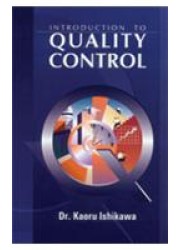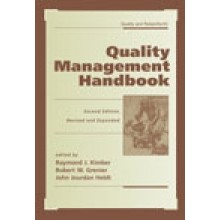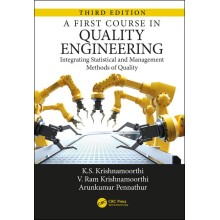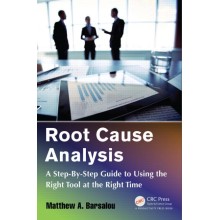Introduction to Quality Control
Quantity:
-
Add to Compare
This book is an English translation of the third edition of "Dai-3-pan Hinshitusu Kanri Nyumon,? originally published in Japanese by JUSE Press Ltd., the publishing arm of the Union of Japanese Scientists and Engineers. "Hinshitsu Kanri Nyumon? has been a long-selling hit for its author, the world-renowned quality control guru Dr. Kaoru Ishikawa. Chapters 1 to 3 detail the basic concepts of quality control, describing modern QC, explaining the statistical approach, and showing how to prepare and use frequency distributions, control charts and other QC tools. Dr. Ishikawa claims that QC means doing what ought to be done in an organized and systematic manner. Chapters 4 to 7 develop the basic concepts covered in the first three chapters in more concrete terms, dealing with analysis and improvement, process control, and quality assurance and inspection, and including advice on the systematic implementation of company-wide quality control. ABOUT THE AUTHOR Quality control activities started in Japan after the end of World War II on their introduction from America by Dr. W E Deming, Dr. J M Juran and other. Dr. Kaoru Ishikawa, Emeritus Professor of The University of Tokyo, first began surveying and studying quality control when he joined a research group set up by the Union of Japanese Scientists and Engineers (JUSE) in 1949. This research was conducted in with the aim of converting quality control, 2which had originated in America, into a form better suited to the Japanese culture. Believing that quality control activities should not be the exclusive e province of a particular group of specialists, Dr. Ishikawa proposed a new system of company wide quality control in which everyone in the company plays a part, from top management right down to ordinary workers. His vigorous leadership in the principles and practice of this system stimulated revolutionary changes in conventional business management concepts and organizations. The quality of Japanese industrial products has increased by leaps and bounds since the end of World War II up to the present day, and it is universally recognized that the quality control activities which Dr. Ishikawa was instrumental in establishing have made a major contribution to this.
Write a review
Your Name:Your Review: Note: HTML is not translated!
Rating: Bad Good
Enter the code in the box below:
Copyright © 2014 Engineering Standards Bureau. All Rights Reserved.
Developed By Zoom Into Web






















